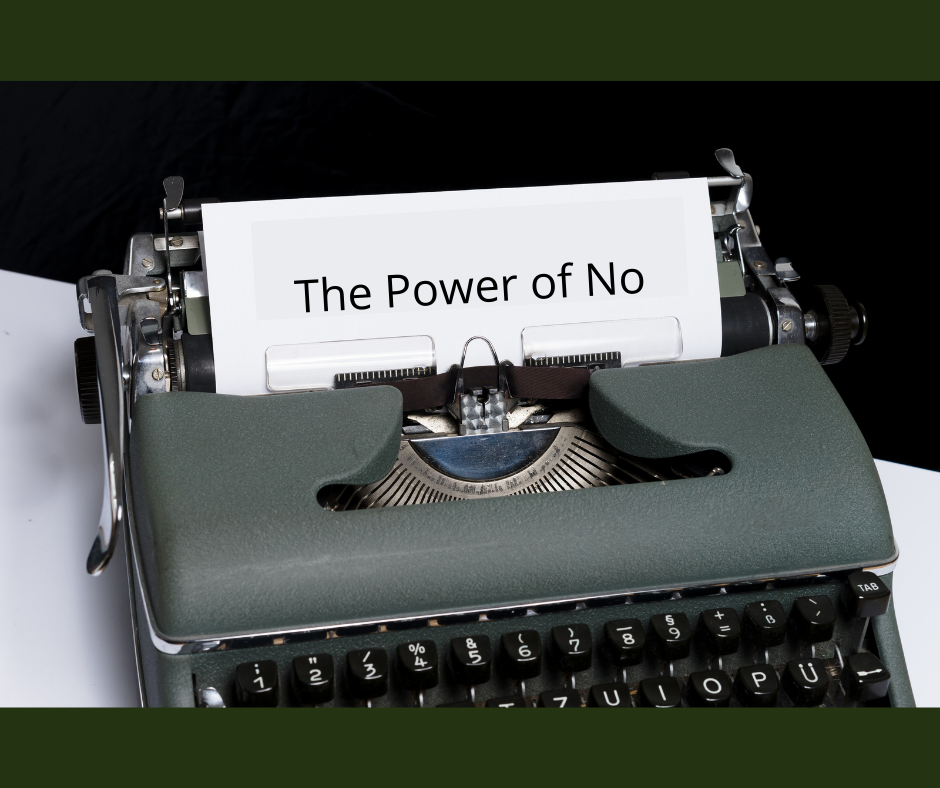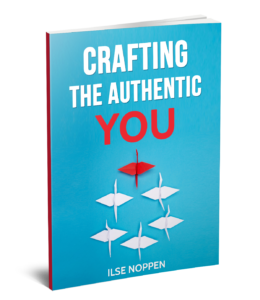
You take on that volunteer role in an organisation you love because they can’t find anyone.
How can you refuse to help your colleague with that important project?
Oh – a great speaking opportunity has come up!
Before you know it, your calendar is more than full with engagements. And not necessarily the ones you really want to commit to. As a result you feel out of balance.
I used to find it very difficult to say ‘No’. I’m better at it today – and happy to call it a work in progress!
Understanding what’s at the root of it
My shift came with the understanding of where my difficulty to say No came from. Indeed, a number of our natural talents can make it difficult for us to say No.
One of those talents is Empathy. Because one understands how it feels to be in their shoes, it’s more difficult to say no. This means other peoples’ needs might take precedence.
Another natural talent is Care & compassion, that desire to take people by the hand, helping and taking care of others. Responding to the needs of others, often results in pushing our own needs aside. And finally, people who are very flexible easily adapt to a new group, environment, culture, plans, ideas; they readily go with the flow – including the flow of others!
Here is another important aspect playing a role: our saboteurs. Those inner voices which push you in certain directions, making you play a smaller or different game than the one you want. Saboteurs misuse your strengths.
They push you to constantly help, please or rescue others. Or tempt you in denying what is staring you in the face: an impossible agenda!
Whatever the talent, or combination of strengths, whatever the saboteur voice, the result is that you lose sight of yourself and your own needs.
The good news is that you can learn to say No!
I will share the five steps you can take to break your pattern of saying yes.
However, first an invitation:
- Honor yourself. Your talents are one of the reasons why you find it difficult to say no. They are part of your uniqueness. Embrace them!
- Give yourself permission to say No, even after you’ve said yes. You are allowed to change your mind.
- Avoid using the word No 😉. No has a negative energy – right? Instead use phrases like: “Yes – and this is how I could see this work”, followed by what by when, or what you need to make it work.
Now, the five steps:
- Take a breather when you hear a request. Don’t let your mind race. Deep breathing lowers your stress hormone.
- Carefully listen to the request with an open mind and curiosity. Be present and try to understand what exactly is needed. You might find a different angle beyond the initial question!
- Check in with yourself: How does the request feel? What is the energy I get from this? What value do I honor doing this? What do I say Yes to exactly and what does it imply? How does it serve me in my life, in my bigger game? Calmly consider the answers to come to your decision.
- Now call upon your other strengths such as your rational thinking, creativity, organisation, big picture thinking. If your decision is a yes, what do you need to make it work?
- If it’s a definite No, or if you have changed your mind: what could you offer to still help the person/company? Help find a solution even in case of a definitive No, as this will also reflect upon your reputation.
Remember: Every No is a Yes to something else.
While you might feel bad about saying No, it is important to realise a No also is a Yes to something else.
For instance, Paola was always helping her team members out. Every Yes actually meant helping them on a short term basis only. She came to realise a No actually benefited their growth and ultimately increased their autonomy, as she helped them see how they could tackle the issues.
And Robert learned that declining invitations from colleagues and friends for dinners (which often left him sick) meant he was honoring his health. He also started offering alternatives, such as going for a coffee.
What saying No also means
Once you practice saying No, and seeing what you say Yes to, you realise what this shift can mean to you. Indeed, it allows you to show up the way you want and craft the life you visualise for yourself. Another benefit is to manage your energy. Our energy is finite and therefore it’s important to use it well, in a way that it is nurturing us. Last but not least, it allows us to manage expectations better and work on our reputation.
Let me know how it goes!
